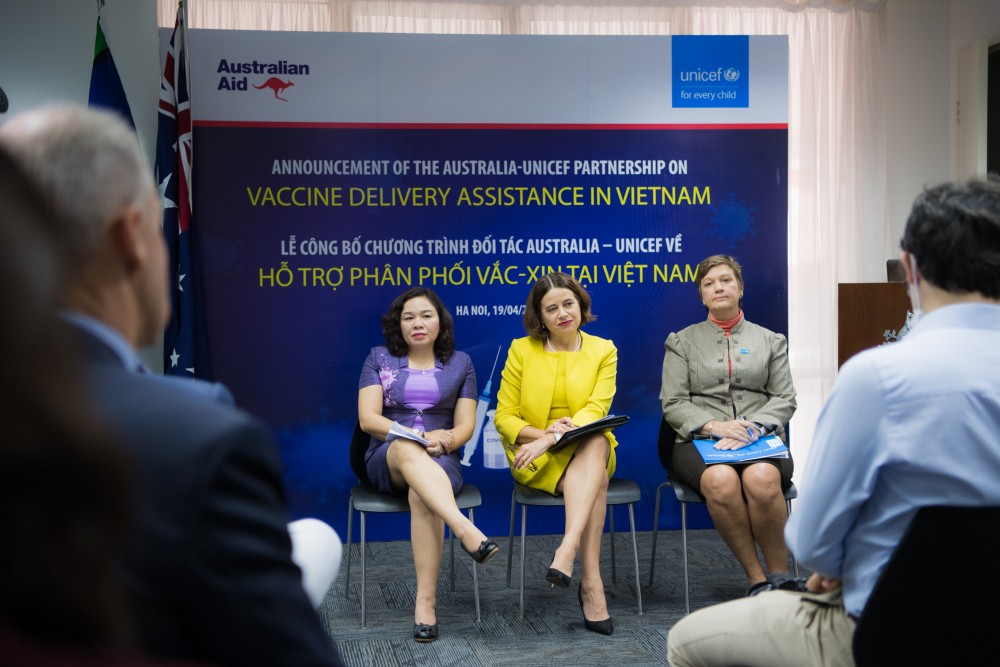
Australia and UNICEF announce landmark partnership to support COVID-19 vaccine delivery in Viet Nam
Latest
The Australia-UNICEF partnership will provide a unique and holistic package that will assist Viet Nam across a range of areas that are vital to the successful delivery of a mass immunisation program against COVID-19.
 |
| At the announcement. (Photo: Australian Embassy) |
“Our support will help Viet Nam purchase cold chain equipment to store and transport vaccine doses to where they are needed around the country, provide training courses and materials to ensure Viet Nam’s health workers and officials are ready, and assist with the development of immunisation plans in Viet Nam’s remote provinces to ensure equitable and uniform vaccine coverage”, said Australian Ambassador to Viet Nam Robyn Mudie.
“Introducing a new vaccine especially for COVID-19 is a colossal task for any government with many important steps involved. Thanks to the partnership with the Government of Australia, UNICEF is committed to work with the Ministry of Health and other partners to support the introduction and rollout of COVID-19 vaccines in Viet Nam.
No one is safe until everyone is safe, so mass vaccination against COVID-19 is an important step to contain the pandemic, protect frontline workers who serve children and for Viet Nam to reopen to the rest of the world”, said Rana Flowers, UNICEF Representative in Viet Nam.
The program will support Viet Nam to reach the prioritised 20 per cent of population by the end of 2022 and set the foundation necessary for immunising the remainder of the population as vaccines are rolled out nationwide. Funding for the program is drawn from Australia’s 523.2 million AUD regional Vaccine Access and Health Security Initiative, as well as from Australia’s bilateral development cooperation program with Viet Nam.
In total, Australia has committed 40 million AUD over three years to support Viet Nam’s vaccine procurement and delivery efforts (34 million AUD from Australia’s Vaccine Access and Health Security Initiative, and 6 million AUD from Australia’s bilateral development cooperation program).













